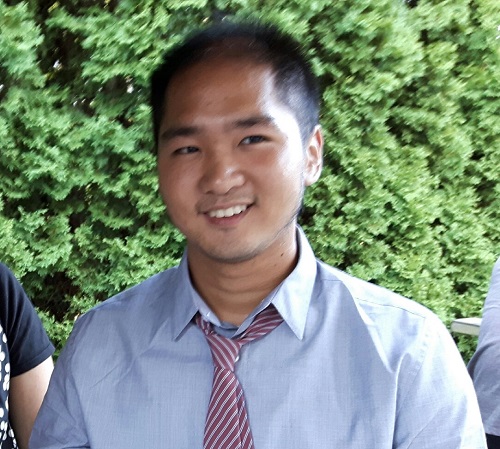Chris Dharma, MSc

- Degree: MSc in Epidemiology & Biostatistics
- Graduating year: 2016
- Name of supervisor(s): Dr. Greta Bauer and Dr. Guangyong Zou
- Accomplishments/Awards: 2015 Carol Buck Award
- Department roles: International Student Representative (Schulich)
- Areas of research:
- Social epidemiology
- Survey methods
- Health inequities
- Health of sexual and gender minorities
-
My Experience
-
Present Position and Future
My route to epidemiology was a nontraditional one. As an undergraduate, I enjoyed doing research but was unsure which field of study I should pursue. Towards the end of my degree, I took a few courses and directed readings on human sexuality and became really invested in that topic. With a background in statistics, I was looking for an area of study where I could combine my interests. Coming across Dr. Greta Bauer’s research, which focuses on sexual and gender minorities, I decided to apply to Western’s epidemiology and biostatistics department to work as her student. I got accepted into the program with minimum knowledge about public health and epidemiology.
As I got familiarized with the field during my time at Western, I actually felt that I made the right choice in choosing epidemiology. The possibilities seem endless; areas of research extend from clinical areas like cancer research to sociological problems such as how an individual understands their intersecting social identities. Together with our team, I was involved in a research that focused on evaluating demographic questions used to identify sexual, gender and racial minorities in population health surveys. At first glance, this seems to be an obvious question. However, with the rapid changes in our population, the diversity in one’s gender, sexual orientation, sexual experiences, racial and ethnic background may no longer be reflected by questions developed ten years ago. On top of obtaining a more accurate data, such information also enables us to address health inequities faced by different sociodemographic groups in the population.
One thing I learned from this degree was that health is not limited to physical health and the typical medical news on the media is not representative of the field. Prior to coming in, I had reservations about the field of public health from “medical news” on the mainstream media. You would hear one day that egg causes cancer, and another day it would protect against cancer. Reports of this nature give research and science a bad name, which makes people become skeptical of scientific findings that actually are beneficial. After a few months in the field, it was to my delight to learn that epidemiology is helping to change these perceptions. It motivates me to follow better research practices, contribute meaningful research, and present findings in a way that is relevant to the “real world”.
From my unique experience, to anyone who is still wavering on different fields of study to pursue, always keep an open mind and read up on any areas that sparks your interest; often you’ll be surprised. When the work you are doing deals with the same questions as those that keep you up at night that is when you know you have found your passion. Read up on any areas that intrigue you and don’t be afraid to contact different researchers about their work, most people are very keen to discuss their work with a potential student!
After graduation, I am now working as a statistical analyst for CHILD study, a longitudinal study that examines the biological, environmental and psychosocial risk factors for the development of allergies, asthma, and chronic diseases on children. In this multidisciplinary project, I am new to the clinical aspects but my work on survey methods during my MSc has been proven to be valuable!
I am still looking for a few different alternatives for the future, but I am interested in continuing to pursue a PhD within 2 to 3 years down the line. Research that incorporates a biopsychosocial approach is the type of work that excites me; social oppression leads to mental health problems which could eventually lead to deterioration of physical health. In some parts of the world, people are still prosecuted for being who they are or are living in extreme poverty. When you live in constant state of anxiety about surviving the day, disease prevention is not as much of a concern. Health promotion should not be separated from these psychosocial issues and this is where I envision my research to be going: methods to understand mental health, psychological constructs and social inequalities.








